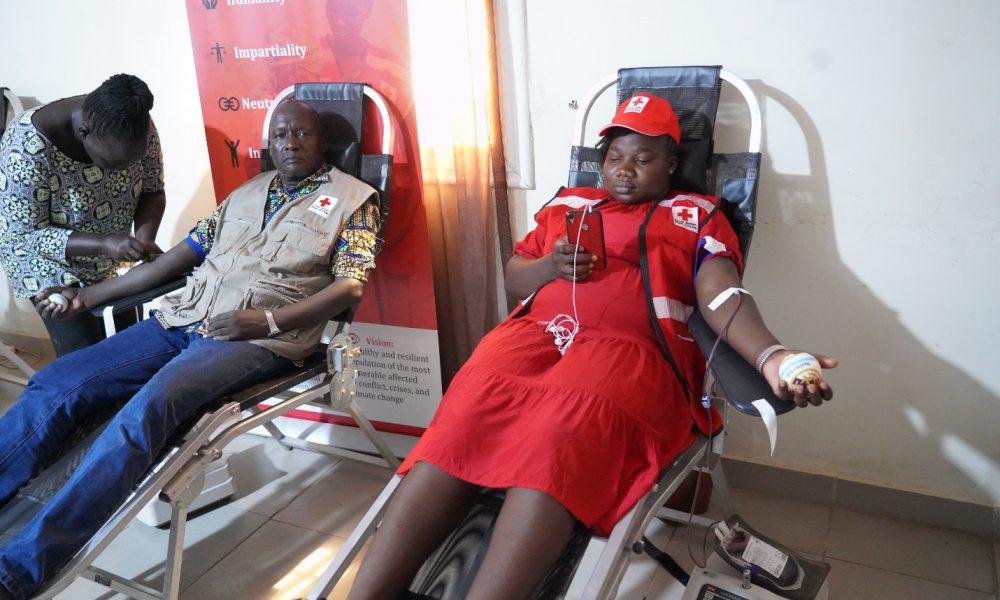By Gladys Fred Kole
Demand for blood transfusion in South Sudan keeps to growing due to several factors, including maternal complications, child malnutrition, emergencies, trauma and violence and medical procedures.
According to the World Health Organization, or W.H.O., 1% of the country’s population needs to donate blood in order to meet the annual requirement.
“In South Sudan, we should be collecting an estimated 120,000 units of blood for the population that we are saving, which is about 12.9 million people,” Dr. Mutale Senkwe Said.
Dr. Mutale Senkwe, a technical officer with the World Health Organization in South Sudan, was speaking on Wednesday at an event to mark World Blood Donor Day.
South Sudan, on Wednesday, 14th June, joined the rest of the world in commemorating World Blood Donor Day in Juba, under the theme “give plasma, share life, share often”.
Dr. Mutale explained that “what we are currently seeing is a donation of 15 units per day, which translates to 5,475,000, and that it is a very small amount compared to the 120,000 units required per year”.
He called on the government to establish and equip state-based blood collection centers.
Meanwhile, Yolanda Awel Deng, the national minister of health, stressed that blood donation exercises in the country are crucial.
“The blood we have in the blood bank is not enough; blood is not for sale in the health facilities, but when it is not there, we are blamed,” Yolanda decried.
She called upon South Sudanese to take ownership of blood donation.
“I urged artists to compose songs about blood donation to create serious awareness of the need so that people start donating blood,” she appealed.
Tako Alex, a 43-year-old regular blood donor, said he has been donating blood for a very long time. He shared his experience of donating blood, saying he feels okay but rather feels dizzy whenever the period for donation kicks in and he hasn’t donated yet.
“I feel really good and get morale to donate, knowing very well I am doing this for the cause of helping save the lives of people out there,” he embraced.
As a health worker, Alex said that some citizens have cultural problems that are hindering them from giving their blood to save lives, adding that they even feel the small amount is going to be sold out.
He noted that other willing potential donors were afraid of losing a droplet of their blood because of poor feeding.
“Others (donors) complain that they are not eating well at home, so why should they donate?” he revealed.
Blood transfusion is a vital component of health care that contributes to saving lives and improving the quality of lives for millions of people globally. It is most commonly used for caring for pregnant women, bleeding children, and children suffering from anemia.
On June 14, across the globe, the world marked BLOOD DONOR DAY as a platform to raise awareness about the importance of blood donation because donating blood is an act of kindness that makes a great impact on the lives of countless individuals across the globe.
Blood donors are celebrated for their selfless gift of life through their blood donations and also encourage others to join in and give someone a chance to live again.




